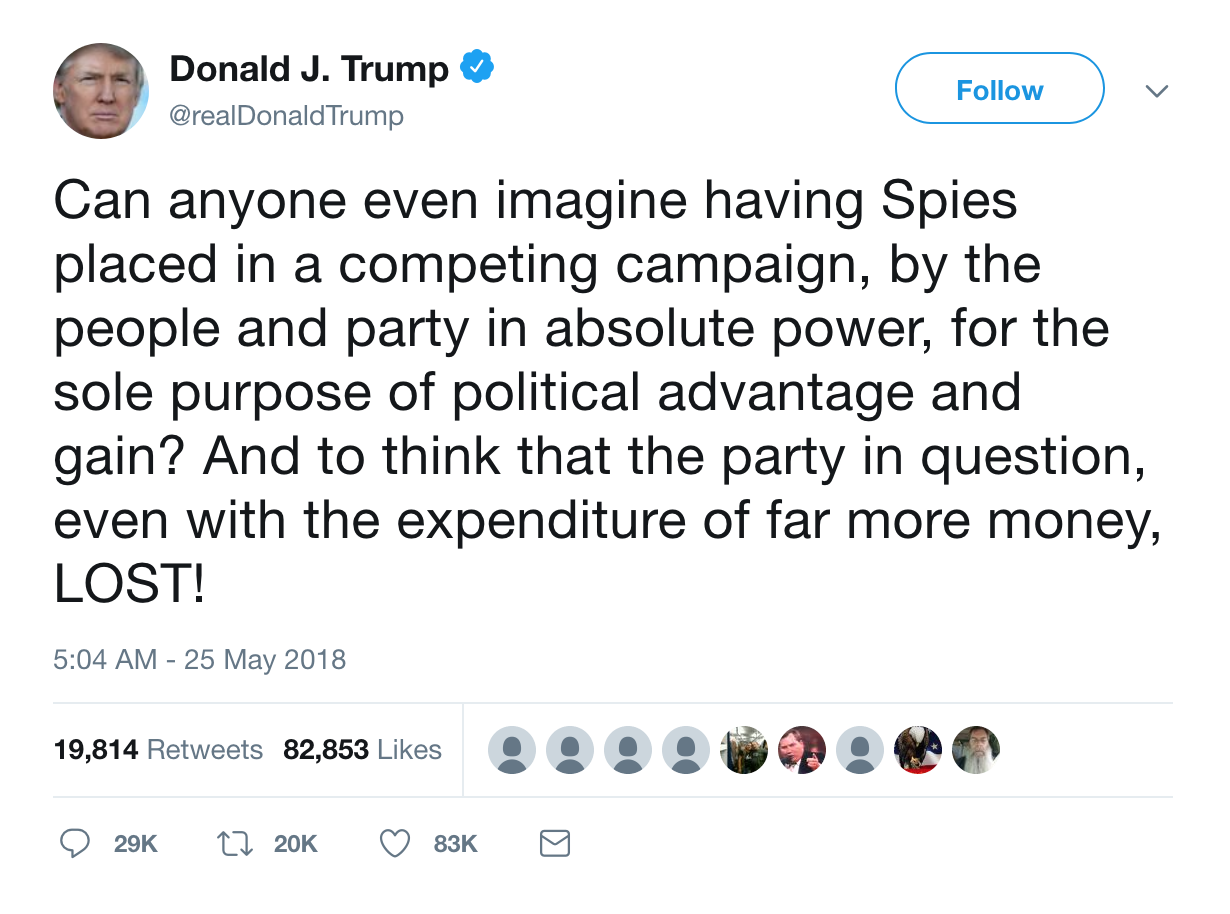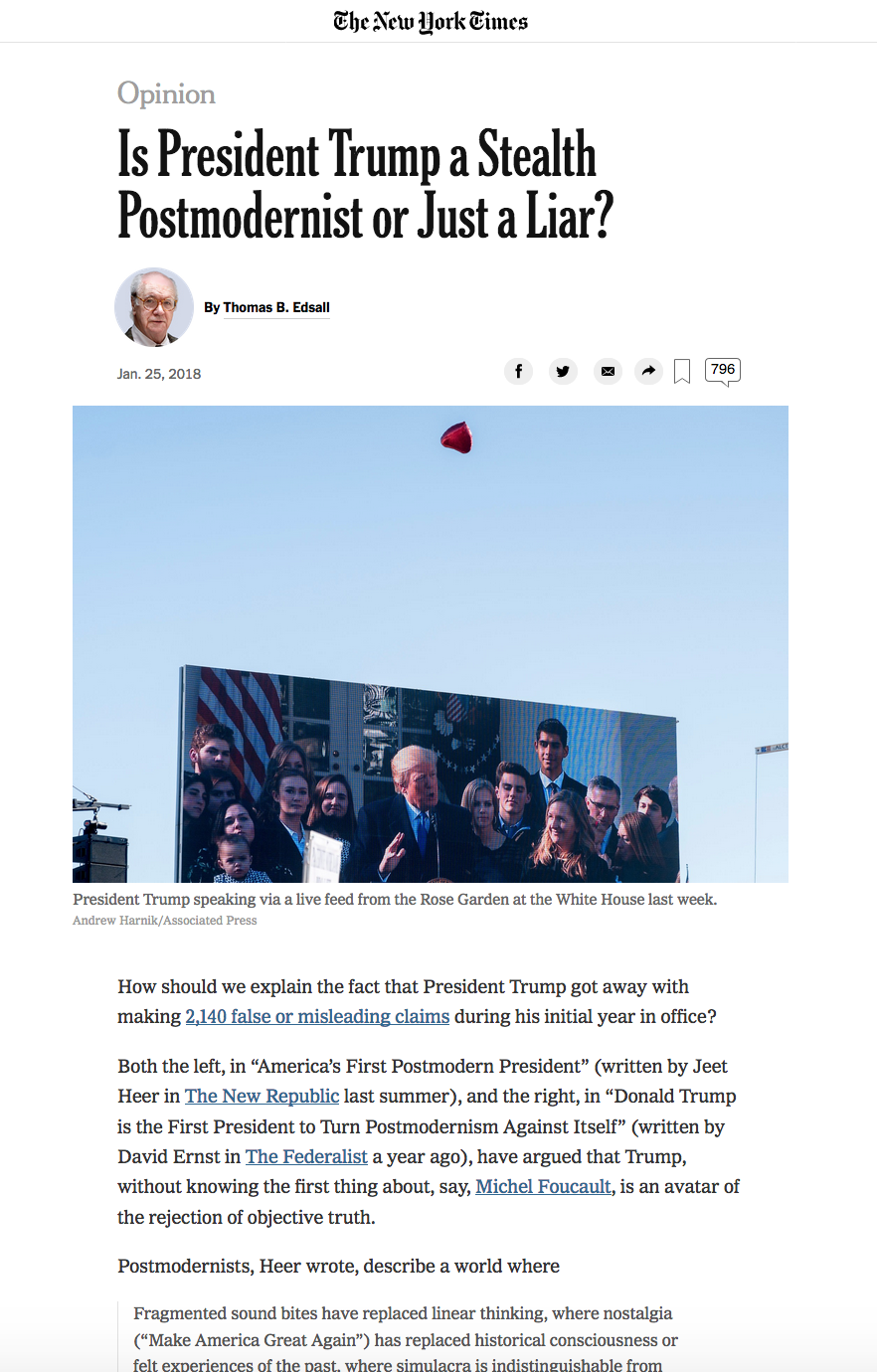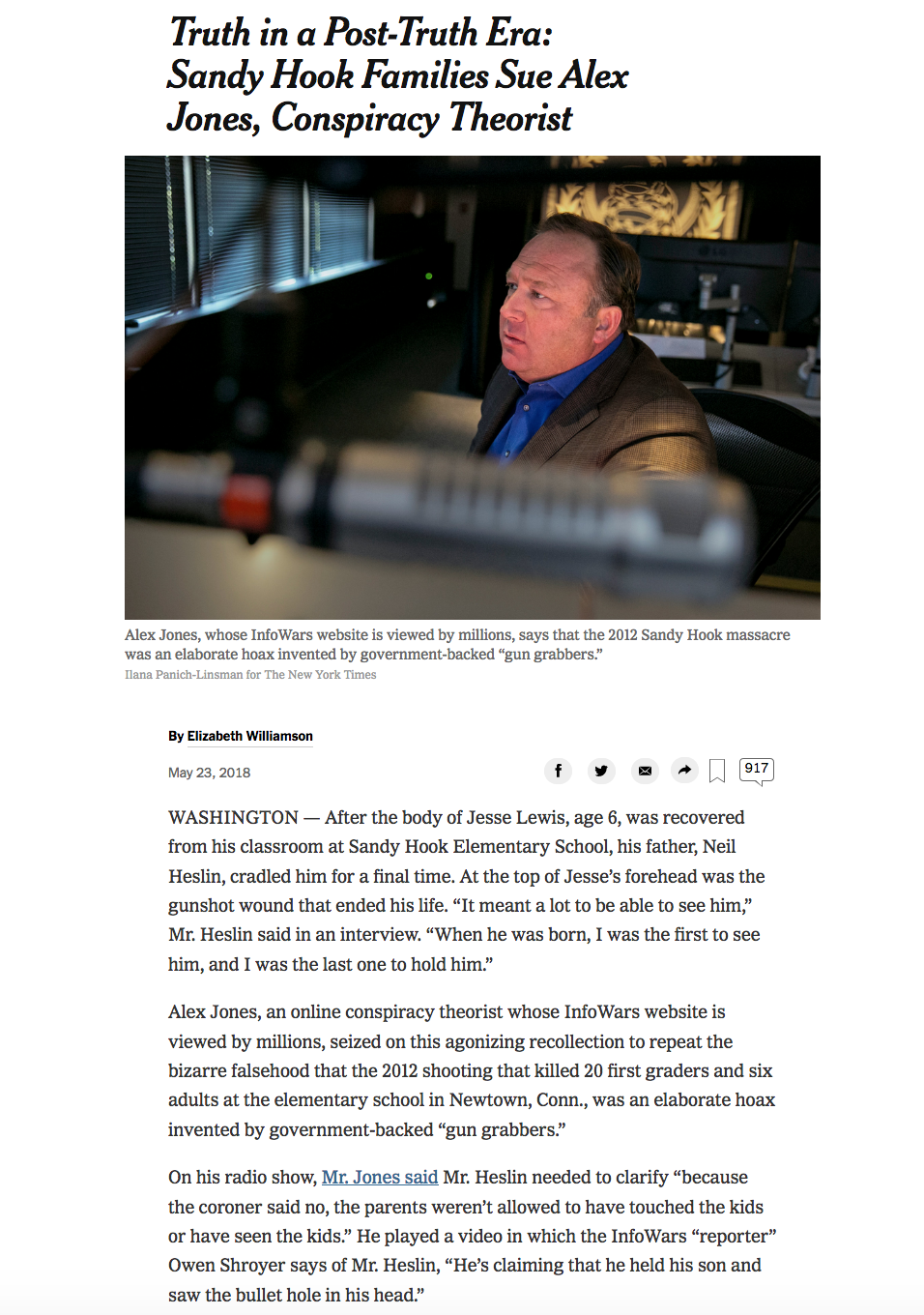 The title of this post is a quotation from US Senator Lindsey Graham, during a recent radio interview — find more details here, in a recent Washington Post report, along with a transcript of that portion of his interview. It concerns the President characterizing someone who is now much in the news as being a “spy” planted in his campaign by the FBI. That others understand this person as an informant — someone who, of their own volition, apparently decided authorities needed to know something he himself knew — is one among many current examples in US politics where it ought to be profoundly obvious that, yes, classification matters.
The title of this post is a quotation from US Senator Lindsey Graham, during a recent radio interview — find more details here, in a recent Washington Post report, along with a transcript of that portion of his interview. It concerns the President characterizing someone who is now much in the news as being a “spy” planted in his campaign by the FBI. That others understand this person as an informant — someone who, of their own volition, apparently decided authorities needed to know something he himself knew — is one among many current examples in US politics where it ought to be profoundly obvious that, yes, classification matters.
But there are those who lament how, as they have characterized it, postmodern sensibilities have destroyed the truth.
 But those of us who have studied these things would probably offer a different sort of analysis, arguing, instead, that the once seemingly stable conditions that determined what got to be understood as true, and who was authorized to speak that truth, are no longer stable, and that the criteria we thought were agreed upon were hardly as settled as many of us had assumed. The success, at least among supporters, of characterizing an informant as a spy — and all the nefarious motives and actions that this implies, at least when the person infiltrates your world (instead of all the positive, risk-taking values associated with infiltrating your adversary’s world) — should make evident that there’s something going on here that deserves more careful examination than just lamenting that we’re now somehow post-truth.
But those of us who have studied these things would probably offer a different sort of analysis, arguing, instead, that the once seemingly stable conditions that determined what got to be understood as true, and who was authorized to speak that truth, are no longer stable, and that the criteria we thought were agreed upon were hardly as settled as many of us had assumed. The success, at least among supporters, of characterizing an informant as a spy — and all the nefarious motives and actions that this implies, at least when the person infiltrates your world (instead of all the positive, risk-taking values associated with infiltrating your adversary’s world) — should make evident that there’s something going on here that deserves more careful examination than just lamenting that we’re now somehow post-truth.
 All this is just to say that scholars of religion in the Durkheimian tradition, who have read their Mary Douglas and who have therefore made the turn toward studying competing classification systems (such as how divergent groups create different spaces in which the live and act by means of words that are representative of institutional structures), have much to study in our current moment. For they will keep in mind that we’re likely no longer talking about the truth in all this but, nodding to the wording of Bruce Lincoln’s last thesis, we’re now in a world where differing regimes of truth are all too apparent — and recognizing the plural, regimes, is the the key here.
All this is just to say that scholars of religion in the Durkheimian tradition, who have read their Mary Douglas and who have therefore made the turn toward studying competing classification systems (such as how divergent groups create different spaces in which the live and act by means of words that are representative of institutional structures), have much to study in our current moment. For they will keep in mind that we’re likely no longer talking about the truth in all this but, nodding to the wording of Bruce Lincoln’s last thesis, we’re now in a world where differing regimes of truth are all too apparent — and recognizing the plural, regimes, is the the key here.